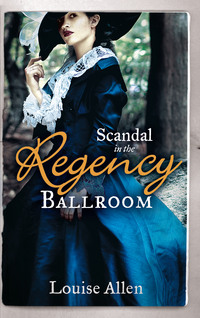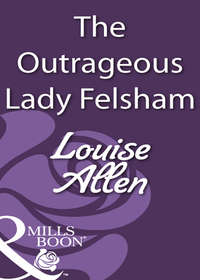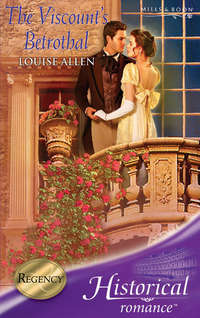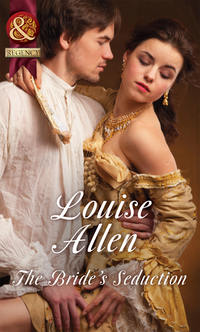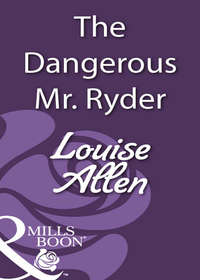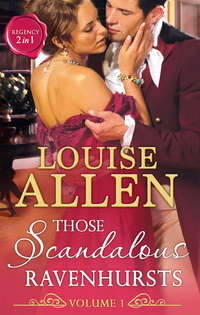
Полная версия
Regency Pleasures and Sins Part 1
The bittersweetness in her voice made his chest ache. Poor Ellie had suffered much for her babes. To lighten her mood he replied, “Does Mrs. Martin have any say in this?”
Elspeth blushed. “Of course. But our family owes her an enormous debt, you must allow. I’m merely considering how we might best go about repaying it.”
“Perhaps Mrs. Martin has plans of her own which will obviate your needing to intervene on her behalf.” Or mayhap someone else does, he added mentally.
“Perhaps. But if not … I shall certainly do my possible. Now I really must rest. Don’t let my minx of a daughter tire you out. She can be exhausting!”
Beau leaned to kiss his sister’s cheek. “I’m glad you’re here, Ellie. I’ve missed you.”
She gave him a quick hug. “And I you, big brother.”
Beau’s smile faded as soon as he exited his sister’s chamber. Having the determined Elspeth play matchmaker for Mrs. Martin was a complication he certainly didn’t need. The mere idea of that lady giving herself to any other man, even in marriage, roused in him immediate and violent objections, though he would hardly voice them to Ellie.
For one, Mrs. Martin responded to him as she did to no other man in Merriville. True, he was hardly a disinterested observer any longer, but in his most professional assessment she’d displayed no such attraction to the squire, nor had her behavior indicated she harbored marital intentions.
Remarriage was certainly one remedy to her current insecurity, the most conventional remedy, but not the only one. He had the power and resources to make her permanently safer and more comfortable than any prospective husband Ellie could bring up to snuff, particularly the aging and only modestly well-to-do squire.
And Beau would make her happier. As lovers, partners and friends, they would please each other. He would stake his last shilling on it.
When—if—eventually they parted, Mrs. Martin would still have the option of remarriage. Only by then, their liaison would have left her socially and financially secure enough to take such a step out of desire, not necessity.
The vague discomfort occasioned by the very idea of Ellie marrying off Mrs. Martin faded, and Beau’s mood brightened. He was delighted to have his sister here—he much preferred having all his family about. Especially since—a double blessing—Ellie’s condition meant that her arrival no longer signaled the departure of Mrs. Martin.
Ellie would certainly attempt to befriend the widow, who was more likely to confide in his sister than in him. Through cautious questioning of his sibling, he’d probably discover more of Mrs. Martin’s circumstances. Even better, Ellie might be able to coax her to join them at dinner or for tea. His spirits quickened at the thought of spending more time with her, even in company.
Of course, if Ellie did get her matrimonial plans in train, it would be the lady’s choice whether she preferred a discrete and long-term liaison with Beau, or marriage to some beau of Ellie’s choosing.
He’d just have to make sure her choice fell on him.
Later that evening another caller joined them. The vicar, Reverend Eric Blackthorne, had stopped by daily with prayers and encouragement during the crisis. Upon learning Lady Elspeth had arrived, he felt obliged to come by at once and pay his regards, he informed Beau’s sister as they sipped tea, his own mama having been a good friend of her mother, the late Lady Beaulieu.
In virtually the next breath, Mr. Blackthorne requested that Mrs. Martin be bid to join them. Perhaps prompted by his recent conversation with Ellie, Beau was suddenly struck by suspicions he had not previously entertained concerning the reverend.
Beau’s initial satisfaction when the footman returned to report Mrs. Martin begged their pardon for declining the invitation, as she was already on her way to relieve Dr. MacDonovan, turned to irritation when the reverend announced he would visit them both in Kit’s chamber.
Best to determine the nature of this unexpected complication immediately, Beau decided. With brisk efficiency he eluded the squire and Ellie in the salon and insinuated himself into the sickroom call.
“Your mother, Mrs. Blackthorne, was a friend of my mama’s?” Beau asked as the two men took the stairs.
“My mother, Lady Islington, was her friend,” the vicar corrected. “My father is Viscount Islington.”
Blackthorne of Islington. Of course. Annoyed with himself for not picking up the family connection upon their first introduction, Beau continued, “Richard, Baron Islington, is your brother? We were college mates.”
The reverend slanted him a glance. “My eldest brother, yes.”
Netted at that dig about his age, Beau nodded. So the vicar wasn’t a country nobody, but scion of an important family. A detail that would surely be noted by his scheming sister.
“Do you intend to stay much longer, my lord?” the vicar asked. “I understand Kit is quite improved.”
Beau’s instinctive wariness deepened. Wanted him out of the way, did the vicar?
“That depends on Kit. Of course, I have pressing business in London, but I cannot depart until I am sure my brother is well and truly out of danger.”
The vicar nodded in turn and the two men continued to the sickroom without further conversation, frosty awareness settling between them. During their previous meetings Beau had been too preoccupied by worry over Kit to take much notice of the vicar. It now appeared the man cherished as little enthusiasm for his presence here as Beau felt at this moment for the clergyman. An unsettling realization.
The frostiness, on Beau’s part, grew chillier as he analyzed the vicar’s behavior toward Mrs. Martin. The reverend was too well bred to single her out, instead conversing easily with Mac, encouraging Kit, and exchanging no more than a few polite sentences with Mrs. Martin.
Even so, Beau had no trouble determining from the warmth of the vicar’s tone toward her, the glances that periodically strayed to the lady’s downcast face even as he conversed with the doctor and Kit, that the reverend held Mrs. Martin in more than a pastoral regard.
Mac left to seek his dinner, the other two men walking with him. But when the vicar halted at the doorway, Beau stopped, as well. With Kit having dozed off again, Beau would be damned if he’d give the insolent fellow the opportunity for a private chat with Mrs. Martin.
Clearly as irritated by Beau’s persistent presence as Beau was by his, the vicar said, “You’ll wish to dine with the doctor. Please, my lord, feel free to do so. There is no impropriety in my remaining here with Mrs. Martin.”
Was that a subtle rebuke? Beau’s temper stirred. “I know you would never overstep the bounds of your calling,” he replied. “But having lived for a week in constant anxiety over Kit, it still soothes me to be near him.”
Counter that, he thought, watching the vicar struggle for another argument to urge Beau’s departure. Obviously failing, Mr. Blackthorne replied, “As you wish, my lord.” Walking to the chair where the widow sat beside her dozing patient, he said in low tones, “How are you, Mrs. Martin? I trust you are watching after your own health.”
She did not look up, nor was there a shade of flirtatiousness in her tone. “I am well, thank you, sir.”
“In any case, with Lady Elspeth here, you should now be able to return home.”
Before she could reply, Beau intruded into the conversation. “My sister is in a delicate condition and must conserve her strength. Mrs. Martin has consented to remain here and continue to nurse Kit in her stead.”
Barely concealed annoyance colored the brief glance the vicar shot to the earl. “Indeed.”
“A true compassionate, Christian lady is our Mrs. Martin,” Beau said, nodding to her. “All of us at Everett Hall value her highly, Reverend Blackthorne.”
“So I should hope. Though I must confess, having you remain under such … crowded conditions does trouble me, Mrs. Martin. Should you choose to return to your cottage, I would be happy to insure that you are escorted to the hall as required.”
“A kind offer, Mr. Blackthorne, but unnecessary,” Beau again answered. “Mrs. Martin would never slight the squire by inferring that his hospitality is less than adequate. And it is more convenient having her close.”
The vicar looked him full in the face. “I’m sure it is—for you. ‘Tis the lady’s well-being that concerns me.”
“The squire’s accommodations are quite satisfactory, Mr. Blackthorne, though you are kind to be concerned,” Mrs. Martin broke in at last, a hint of exasperation in her tone. “If I require assistance, I shall certainly let you know. But now, gentlemen, your discussion seems to be disturbing Mr. Bradsleigh. Why don’t you continue it elsewhere and visit him again later.”
“As you wish, Mrs. Martin,” Beau replied, amused and impressed. She’d just managed to banish the vicar—and himself, as well, unfortunately—with both tact and dispatch. “Mr. Blackthorne, I believe we’ve been dismissed.”
His only consolation was that the lady seemed no more encouraging of the vicar than she was of the squire.
After the obligatory exchange of compliments, the two men left. Falling into step beside the vicar, Beau said, “You need not worry about Mrs. Martin. I shall personally insure she takes proper care of herself.”
“That is precisely what worries me, my lord.”
Beau halted and pinned the vicar with an icy glare that had daunted many a subordinate. “You will explain that remark, please.”
The vicar, to Beau’s grudgingly accorded credit, did not flinch.’ ‘I am concerned with the welfare of all my parishioners, Lord Beaulieu. You are a stranger, and may not understand the … harm you could do Mrs. Martin, however unintentionally, if it becomes known she is much in your company. Folk here do not approve of loose London ways.”
By gad, was the vicar maligning his honor by suggesting he’d give Mrs. Martin a slip on the shoulder under the very nose of the injured brother whose life she’d just saved? Had it been anyone other than a man of the cloth, Beau would have called him out on the spot.
Instead, controlling his outrage with an effort, Beau replied, “You overstep yourself, sir. I am fully conscious of the magnitude of the service Mrs. Martin has done my family. I would never cause her harm.”
The vicar held his ground. “I should hope not. But you should be aware, sir, that Mrs. Martin is not as defenseless as she might appear.”
“No, she is not,” Beau shot back. “She has the full protection of the Bradsleigh family. See that you remember that.” Having reached the entry landing, Beau made a stiff bow. “I will rejoin them now. Your servant, sir.”
“My lord.” Face impassive, the vicar nodded and walked back toward the entry.
Beau watched him depart, struggling to master his anger. As if Beau would force his attentions on any lady, much less one to whom he owed such a debt of gratitude! Still, he noted, the vicar could have done nothing more revealing of his feelings toward Mrs. Martin than practically accuse Beau of intending to seduce her.
Given the judgment-impairing effects of such partiality—effects Beau had suffered himself—he would attempt to excuse the vicar’s insulting innuendo.
That Beau entertained hopes of winning the lady’s favor he would not deny. And though those hopes might not veer toward matrimony, Mrs. Martin was not a young virgin whose reputation could be ruined by a discreet affair.
Except … the vicar might be correct in asserting the rural folk of this neighborhood might take a less enlightened view of such a relationship. Perhaps Elspeth’s idea of relocating Mrs. Martin had merit.
A circumspect liaison conducted elsewhere would, if anything, enhance her stature. In addition to the financial protection he was eager to offer, she’d meet prominent individuals whose influence could ease her way the rest of her life, as well as becoming acquainted with all the gentlemen of birth and status Ellie could hope for.
Should they later part company, most of these gentlemen would not consider her relationship with Beau disqualified her as a possible wife. Indeed, though her birth seemed merely respectable and her current position was less than modest, he wouldn’t rule out the possibility of wedding Laura Martin himself. Especially since he found the notion of her going to any other man extremely distasteful.
The spark of an idea caught fire in his heart and head. Beau had already absented himself from his work about as long as he could afford. Returning to visit Mrs. Martin at this remote area on a regular basis might well be difficult. Having her established somewhere close enough for daily visits would be much more satisfactory—so satisfying, in fact, that Beau could almost forgive the vicar his temerity in broaching the issue.
That decided it. As soon as Kit had sufficiently recovered, Beau would have to persuade her to come to London.
Chapter Seven

By the next afternoon Beau was once again out of charity with the vicar. Apparently the reverend had spread word of Ellie’s arrival and Kit’s improvement throughout the county, for beginning that morning they’d had a steady stream of callers. Having been interrupted three times already while trying to assimilate the contents of the satchel his courier had delivered at dawn, Beau nearly told the apologetic footman who’d just appeared once again to convey his regrets.
Then, knowing his kindhearted sister would never be so uncivil as to refuse to receive the local gentry, and realizing the task of entertaining the curious would fall on her delicate shoulders should he shirk a duty he was finding particularly irksome today, he relented.
With a sigh he set his papers aside and followed the footman to the parlor. The striking blonde seated beside his sister surprised him out of his irritation.
The lady rose and followed him to the window where, after bowing a greeting, he’d gone to join the squire. “Lord Beaulieu, what a pleasure to see you again!”
She held out her hand. Compelled by courtesy, he accepted it, his initial appreciation of her striking beauty dimming. Forward baggage.
“You’ll remember me from Lord Greave’s house party last fall at Wimberley. Lady Ardith Asquith.”
As usual, the business reasons behind his attendance at that event had limited his time among the female guests. He scoured his memory, finally coming up with a flashy blonde accompanying an elderly peer.
His eyes narrowed as he swiftly assessed the daringly low-cut gown, the guinea-bright curls, the perfect skin, pouting lips—and bright, hard eyes. A self-absorbed beauty.
“Yes, I remember, Lady Ardith,” he said, bringing her fingers to his lips for the obligatory salute. “And how is your husband, Lord Asquith?”
She flapped long painted lashes and gave him an overly familiar smile whose hint of shared intimacy he immediately resented. “Preoccupied as usual, my lord. Poor me—I so often have to find my own … amusements.”
He knew he wasn’t imagining the barely veiled innuendo, and his assessment of her character dropped lower. So Lady Ardith enjoyed collecting titled lover pelts, did she? He determined on the instant to discourage the connection.
But when he tried to reclaim his hand, she clutched it, causing him to automatically glance at his fingers—straight at the lavish breasts just below them, revealed to any downward-gazing eye all the way to the taunting pink edge of the nipples. A quick sideways glance confirmed the squire’s gaze was riveted on the view.
He looked back up to catch his sister’s amused but sympathetic eye. “Lady Ardith tells me her husband owns property in the neighborhood,” Elspeth said, “and they often spend a few weeks here when not occupied in London.”
“On those occasions when Lady Ardith—and Lord Asquith, of course—choose to honor us, their company is always a valued addition to our society,” the squire said.
Lady Ardith leaned further forward as she squeezed the squire’s hand. “Dear Squire Everett! How could I not attend your gatherings as often as possible when I know such a gallant gentleman awaits me?”
The squire paused, apparently too distracted for speech while he struggled between the propriety of raising his eyes to her face and the titillation of visually fondling the display beneath his nose.
Beau watched a knowing smile curve the corners of Lady Ardith’s lips and his disdain increased. He’d bet the price of her elegant gown that, even bored to flinders in what she no doubt considered a rustic outpost, Lady Ardith would never consider adding the middle-aged, balding squire to her list of indoor sportsmen. Yet she seemed driven, as beautiful females often were, to captivate every male who crossed her path, whether she valued his regard or not.
Attracting a man of Beau’s wealth and rank likely would interest her, he thought cynically. Since he had no desire whatsoever to help Lady Ardith beguile the tedium of her country sojourn, he’d end this game at once.
While she toyed with the squire, Beau crossed the room and usurped her seat beside his sister. Lady Ardith’s self-satisfied smile wavered briefly when she discovered his move, but brightened again after the squire led her by the hand to a chair beside his own.
“Squire Everett, you must give a ball in honor of Lord Beaulieu and Lady Elspeth!” the lady exclaimed. “I should do so myself, but since we open the house here for such short periods, we do not maintain sufficient staff.”
A pinch-penny, as well, Beau thought, disgusted. “With my brother’s health so uncertain, I do not believe we could consider a ball. And at present, Lady Elspeth’s health is too … delicate for dancing,” he replied.
“His lordship’s got the right of it,” the squire agreed. “With young master Kit still so ill, ‘twould not be fitting to disport ourselves at a ball.”
“You are right of course, my lord. A dinner, then,” Lady Ardith persisted. “Something rather more quiet, with just the first families of the neighborhood in attendance. That would not tax Lady Elspeth’s strength, for she could retire early. I should be happy to preside over the tea tray for you, Squire Everett.”
“His sister, Lady Winters, could do so,” Beau said.
His repressive tone didn’t seem to dampen the lady’s pretensions a bit. “Ah, dear Lady Winters? Is she visiting you currently? I thought she’d removed to Bath.”
“No, surely you remember, Lady Ardith, she returned here when her husband died two years ago,” the squire said.
Lady Ardith trilled a laugh. “Oh, yes, how silly of me.” She waved a hand, dismissing Lady Winters. “I fear I have no head at all for dates and figures.”
“A dinner would be lovely,” Elspeth intervened, wary of the growing irritation she no doubt perceived in Beau’s expression. “Assuming Kit continues to improve, Dr. MacDonovan will want to depart by the week’s end. Before he goes, we should like to do something to honor him. And Mrs. Martin, of course.”
“Aye, it could be a tribute to both our angels of mercy,” the squire concurred.
Beau opened his lips to squash the idea. He had no intention of providing both the forum and the target for Lady Ardith’s next hunt.
But then he reconsidered. With a little arranging he could pawn that lady off on Mac and the vicar—and arrange to have himself seated near Mrs. Martin.
Mrs. Martin, her auburn hair freed from the ubiquitous cap, her form garbed in something more becoming than the awful brown sacks she habitually wore. His Sparrow in evening dress.
To savor that vision would be worth fending off a dozen Lady Ardiths.
“A capital idea, Squire Everett,” he said. “The doctor and Mrs. Martin deserve our most warmest gratitude.”
Lady Ardith’s look of triumph faded. “Mrs. Martin? That local—herb woman—was allowed to tend your brother!”
“She saved his life, as the doctor will testify,” Beau said, “and deserves the highest commendation.”
“Your desire to acknowledge her is most kind, my lord, but … at a dinner?” Lady Ardith interjected. “Such a lowly personage would doubtless be most uncomfortable to be seated at a social gathering among her betters.”
“Nonsense,” the squire returned. “Mrs. Martin’s gentry-born—her late husband was an army officer—and has dined with us on several occasions.”
Better and better, Beau thought, his enthusiasm for the dinner party growing. Since Mrs. Martin had apparently already appeared at neighborhood social gatherings, she would not be able to escape with that excuse.
“It’s settled then,” Beau said. “On Friday, shall we say? Dr. MacDonovan told me this morning he hopes by then to declare Kit finally out of danger.”
“Squire Everett, will arranging a dinner party on such short notice be too much for your sister?” Elspeth asked.
“Not a bit,” Squire Everett replied cheerfully, obviously taken with the idea. “If she falls prey to the vapors, Mrs. Martin can help out. She’s assisted Emily before. A lady of many talents, our Mrs. Martin.”
“So it appears,” Beau murmured.
Lady Ardith continued to haggle over the wisdom of including an unattached lady in the gathering, but convinced the squire would go through with the plan whether Lady Ardith chose to attend or not, Beau let the conversation fade to a babble while he set about reviewing the pleasing implications.
This dinner might be just the thing to breach Mrs. Martin’s reserve for good. If she appeared at the party to receive the admiration and respect he knew her loveliness would generate, perhaps that acclaim would cause some of her nervous reticence to fade. Even better, he’d be able to pay her gentle, persistent attention in a forum where such behavior was entirely appropriate, nothing to inspire alarm. Once she grew less wary and more comfortable around him, he’d finally be able to get close enough to demonstrate his genuine respect and concern.
Surely then she would come to trust him—and heed the call that impelled her to come to him.
The next afternoon, in a pretty note begging her pardon for the inconvenience, Lord Beaulieu’s sister asked Laura to join her in the sitting room attached to her chamber, as she found herself too weary after her journey to come downstairs. Bowing to the inevitable, Laura steeled herself for the interview.
As Lady Elspeth was several years older, she had already come out, married, and left London to raise a family by the time Laura made her debut. So there was no chance whatsoever, Laura told herself, trying to squelch her ever-present anxiety, that Lord Beaulieu’s sister might recognize her.
Deliberately garbing herself in the ugliest of Aunt Mary’s gowns and the most voluminous of the lace dowager caps, Laura forced her face into a mask of serenity and knocked at the door of Lady Elspeth’s sitting room.
But as she entered, a small figure bounded up. “Did you nurse Uncle Kit and keep the angels from taking him to heaven?” she demanded.
“Catherine!” her mother protested from her reclining position upon the sofa. “You mustn’t pounce upon people like that. Greet Mrs. Martin properly, if you please.”
With a sigh the girl straightened, then dipped a curtsey. “Good day, Mrs. Martin. I trust you are well?”
The speech was so clearly parroted—and practiced—Laura had to smile. “Good day to you, Lady Catherine. I am quite well, thank you. And you?”
“Very well, but Mama’s not. That’s why she’s so cross. Uncle Beau said you kept the angels from taking Uncle Kit. I’m so glad! He’s ever so much fun, and I’m not finished with him yet.”
The vision of angels tussling over Kit Bradsleigh’s bed tickled Laura’s whimsy, and some of her nervousness fled. She took the hand Lady Catherine held out and walked with her to the sofa.
“Perhaps God wasn’t ready for him yet,” Laura said. Unlike my Jennie. A dull ache permeated her at the unbidden thought, and wearily she suppressed it. “But Dr. MacDonovan did most of the work, you know.”




